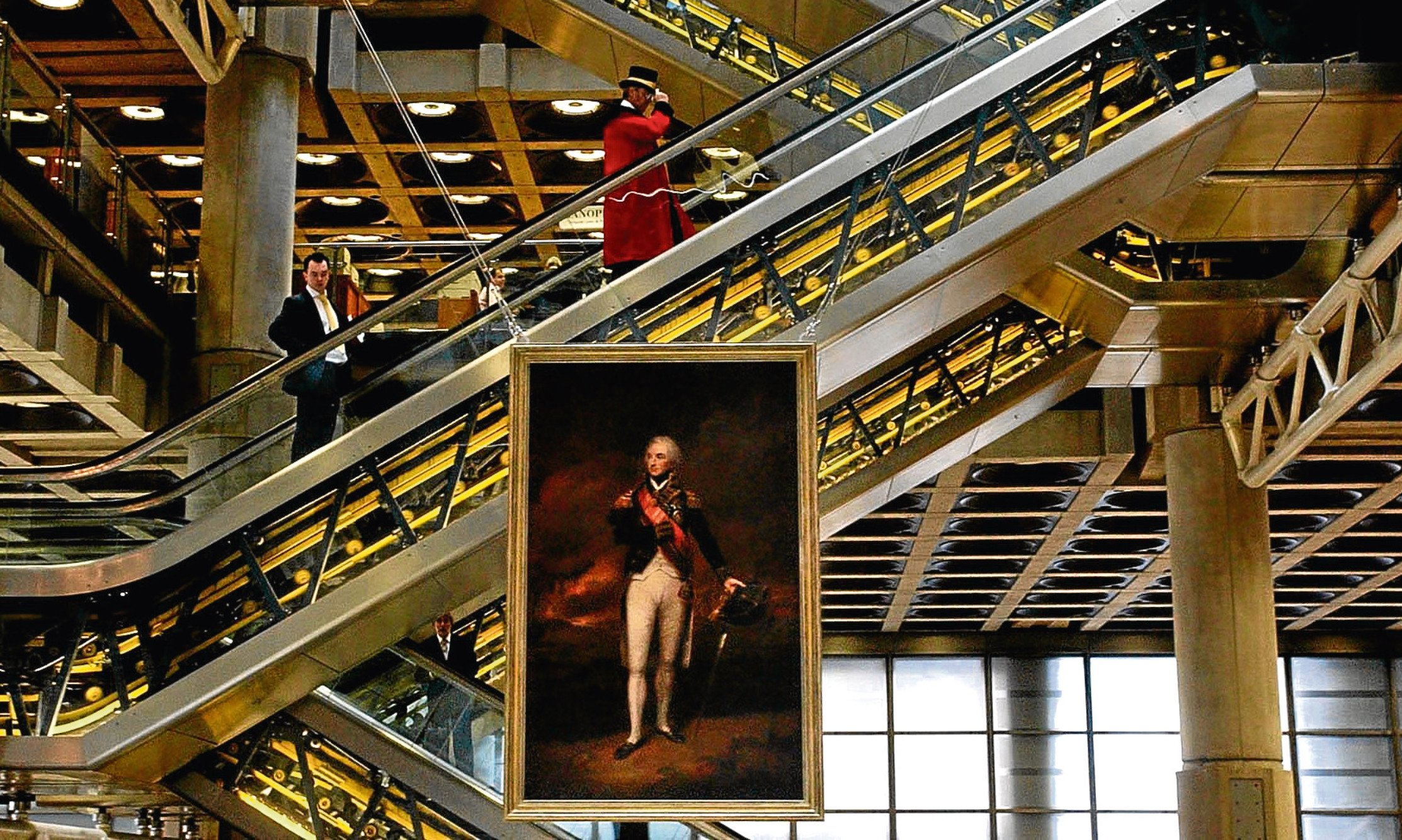Sir,- I was interested to read recently that staff at Lloyd’s of London are up in arms at the company’s ban on drinking alcohol during working hours.
After being in the business of managing our money for 300 years, and almost 10 years since the financial crash of 2008, when financiers almost bankrupted the world, it would seem that the City of London is finally beginning to recognise that dealing with the world’s finances after drinking alcohol is perhaps not a good idea.
It just shows what a different world these people inhabit. The rest of the world of work has had a ban on drinking during working hours for decades yet some in the City still consider it acceptable to go out and get plastered before tottering back to the office to gamble on the futures markets with our money.
What is even more surprising is that the regulators, who have allegedly put in place strict rules to protect investors from the reckless practices of the past, have not seen fit to require companies to ensure that their staff are in a fit state to do their jobs.
This is the sector of the UK economy which Theresa May’s Government has made its number one priority for protection in the forthcoming Brexit negotiations.
Les Mackay.
5 Carmichael Gardens,
Dundee.
Tax weighing down Scots
Sir, – Last week when the council tax rates for Scotland were confirmed, an SNP spokesman claimed the rises were “fair and proportionate” adding that three out of four households will not see any change in the amount they pay.
Unless my logic has vanished since schooldays, an overall rise of 3% still means that tax levels have increased by 3%.
Granted, the low increases in bands A to D are below £34.74 annually but overall “no change” is not the truth.
Most Scottish council tax E to H bands face increases of 11% to 26%.
The recent SNP rise in income tax for middle and higher earning Scots is now well above UK levels.
Added to those burdens, property transfers attract a punitive Land and Buildings Transaction Tax higher than in England and last week’s massive increases in business rates will prove the coup de grace for many essential new-starts and other struggling enterprises.
Angus Brown.
The Orchard,
Station Road,
Longforgan.
Be straight with taxpayers
Sir, – When Angus Councillor Bill Duff presented his budget for approval in Forfar last Thursday he stated: “As sure as night follows day these austerity measures are the fault of the Westminster Government”.
This was backed up by Councillor Paul Valentine. This is an example of the SNP believing that if you say something often enough it may become true.
We constantly hear the SNP rhetoric about “Tory cuts”.
The truth is that the total Scottish budget for 2017-18 shows a huge £371 million real-terms year-on-year increase.
Spending on Scotland by Westminster has now even overtaken the pre-austerity peak of 2009-10 and this is despite North Sea oil revenues having declined by nearly £6 billion since then.
Scottish Government Cabinet Secretary for Finance Derek Mackay is wrong when he says the budget has decreased by 9.2%.
When will the SNP at government level and local councillors own up to the facts? The SNP make choices on how the money is spent.
They have clearly chosen to underfund local councils and cause the loss of local services while choosing to spend on projects that my constituents would not consider a priority.
I hope the people of Angus and Scotland are paying attention.
Councillor Bill Bowles.
22 Philip Street,
Carnoustie.
Speed limits need enforcing
Sir, – While it is admirable that more 20 mph speed limits are being introduced (February 16) there is no point in having good laws if there is no-one there to enforce them, so I hope there will be speed cameras as well.
I was nearly killed recently on Blackness Road near Oxford Street, Dundee.
I crossed thinking it safe when a car whizzed past me having rounded a bend some 30 yards to the east at something like 50 mph.
Clearly there needs to be speed cameras at places like this. If traffic is light, motorists often assume they can go as fast as their hormones feel like.
Antony Black.
79 Blackness Avenue,
Dundee.
Writer’s failure to respond
Sir, – The generous, daily coverage by Scottish television channels of our First Minister’s statements, visits and political plans, usually without criticism or even polite questions by their reporters bespeaks huge, uncritical publicity for a party in government which, to their political opponents, offers many hugely open goals.
Mr Clark’s point about many years of Westminster political predominance being the explanation for our economic, educational, NHS and policing problems is negated by the decade or more of SNP control of Scotland’s governance.
The bias undoubtedly shown by the media, especially television, seems to me to reflect their programme makers’ evident contempt for their viewers’ political sophistication and critical faculties, since their news producers very seldom offer more than one point of view on any controversial political or other issue, as if that might be too boring and complex for the typical viewer to assimilate.
In attacking Dr Lindsay’s letter, Mr Clark has not answered its points of criticism, which are important enough to merit more serious attempts at rebuttal.
Dr Charles Wardrop.
111 Viewlands Road West,
Perth.
Protest at Trump snub
Sir, – I am appalled by President Donald Trump’s decision not to come to Scotland on his state visit.
I suggest Nicola Sturgeon protests vociferously.
The people of Scotland should not be denied the right to call for his visit to be cancelled, and our MSPs should be granted the opportunity to enthusiastically virtue signal by preventing him from addressing them during a visit.
Richard Lucas.
11 Broomyknowe,
Colinton,
Edinburgh.
